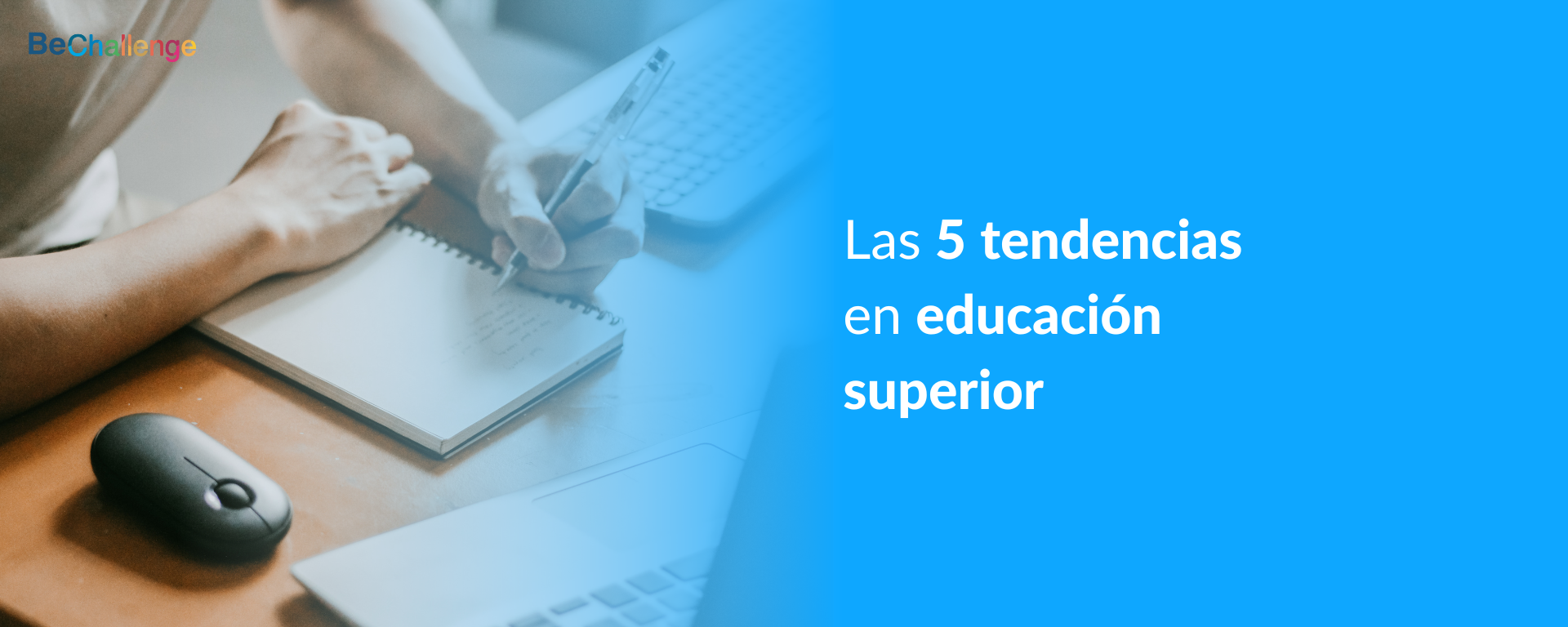Education is a constantly evolving field and, as the world changes, it is important that education also evolves to adapt to the needs of students and the world of work.
Here are five trends that are expected to mark education over the next ten years.
- Increased use of technology in the classroom
With the proliferation of devices and the increasing availability of online educational resources, we are likely to see increased use of technology in the classroom. This may include using online platforms for teaching and learning, using mobile apps for homework and assessment, and integrating virtual and augmented reality into the classroom.
The use of technology in the classroom has many benefits. On the one hand, it allows students to access a wide range of learning resources and materials, allowing them to learn at their own pace and in ways that best suit their needs. In addition, technology can also be used to personalize learning, providing students with content and activities tailored to their individual needs and levels.
On the other hand, the use of technology also poses some challenges. There may be a technology gap between students who have access to devices and high-speed Internet connection and those who do not, which may hinder equal opportunities. Furthermore, it is important to ensure that students also learn to use technology critically and responsibly, and not simply consume content online without reflecting on it.
2. Increased prevalence of interdisciplinary and transdisciplinary learning
Rather than learning isolated subjects, education is expected to focus on integrative approaches that draw on multiple disciplines and address complex problems in a multidisciplinary manner. This may include creating curricula that combine various subjects, such as science, technology, engineering, art and mathematics (STEM), or integrating interdisciplinary approaches into existing subjects.
Interdisciplinary learning involves the integration of two or more disciplines to address a specific problem or topic. For example, a biology course that includes chemistry and physics components, or a history project that uses elements of geography and literature.
In addition, it helps students see the connections between different disciplines and how they relate to each other. This can provide a deeper and more meaningful understanding of the subject and can help students apply what they have learned to real-world situations. In addition, interdisciplinary and transdisciplinary learning can also improve students’ creativity and critical thinking, forcing them to see things from different perspectives and to think more systemically and holistically.
Sin embargo, el aprendizaje interdisciplinario y transdisciplinario también plantea algunos desafíos. Puede ser difícil para los profesores crear y planificar programas de estudio interdisciplinarios o transdisciplinarios y puede requerir una mayor colaboración y coordinación entre diferentes departamentos y disciplinas.
Además, es importante asegurar que los estudiantes reciban la orientación y el apoyo necesarios para tener éxito en este enfoque de aprendizaje y que se les proporcione la oportunidad de desarrollar las habilidades y competencias necesarias para trabajar de manera interdisciplinaria y transdisciplinaria.
3. Blended Learning
Blended learning is another trend that is expected to have a major impact on education in the coming years. This approach combines online and face-to-face learning, allowing students to learn at their own pace and in ways that best suit their needs.
Some of its many benefits are that it offers students flexibility and convenience as they can access learning materials and conduct online activities anytime, anywhere. The blended learning can also provide greater individualization and personalization of learning, as students can move forward at their own pace and receive additional support when needed.
On the other hand, blended learning also poses some challenges. It is important to ensure that students have access to the technology and Internet connection necessary to participate in online learning, and it is also important to provide appropriate guidance and support so that students can succeed in this learning approach.
4. Increased emphasis on skills development
In an ever-changing job market, it is increasingly important that students develop a wide range of skills that will be useful in the future, rather than simply memorizing facts. These skills can include specific technical skills such as programming or graphic design, but also soft skills such as critical thinking, problem solving and effective communication.
To encourage skill development, it is important to provide students with opportunities to apply what they have learned through practical projects and problem-based learning activities. It is also important to provide students with feedback and guidance so that they can identify their strengths and weaknesses and focus their learning on the areas where they need improvement most.
5. Increased emphasis on experiential learning
Experiential learning is another trend that is expected to become more prevalent in the coming years. This approach involves learning through hands-on experience, such as internships, in-service learning, and learning projects.
El aprendizaje experiencial permite a los estudiantes aplicar lo que han aprendido a situaciones del mundo real y obtener una comprensión más profunda y significativa de la materia. Además, el aprendizaje experiencial también puede proporcionar a los estudiantes oportunidades para desarrollar habilidades y competencias valiosas en un ambiente de trabajo real, lo que puede mejorar su empleabilidad y prepararlos para el mundo laboral.
Sin embargo, es importante asegurar que los estudiantes tengan acceso a oportunidades de aprendizaje experiencial de calidad y que se les proporcione la orientación y el apoyo necesarios para tener éxito en estas experiencias.
In conclusion, these five trends are expected to mark education over the next 10 years. While each of these trends poses challenges and requires appropriate adaptation and planning, they also offer many opportunities to improve education and prepare students for the world of work and life in general.
¿Quieres transformar el aprendizaje en tu institución?
Solicita una demo gratuita y descubre cómo BeChallenge te acompaña en el proceso.
Solicita una demo gratuita
